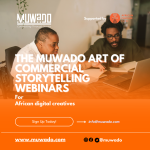In Uganda, we still value academic education far more than public education, even when new developments such as the World Wide Web and Artificial Intelligence have minimal respect for academic education.
One definition of academic education is that it is the process of learning and gaining qualifications through education. It involves gaining knowledge, skills, and ways of thinking. An “Academic” Education is sometimes defined as education which has content learning as its primary purpose. Some institutions and educational systems have equated academics with learning that takes place in a university or tertiary education institution (ACS Distance Education, 2022).
Expectations about academic education can include:
- Specific types of learning environments such as lecture theatres, libraries, and laboratories
- Specific types of assessment tasks such as essays, examinations and vivas (oral examinations)
- Specific styles of delivery – teachers, tutors or lecturers may be required to deliver large amounts of information in a short period of time, making explicit teaching a requirement. While some variety may be possible within tutorials or seminar classes, these are not always the norm.
According to QUORA, academic education is essential as it cultivates a foundation of knowledge, skills, and critical thinking abilities that are indispensable for personal growth. However, not everyone who receives academic education is able to develop critical thinking skills (Oweyegha-Afunaduula, 2025). However, this is not the case for all types of academic education (ACS Distance Education, 2022).
It is encouraging that Amanya Mushega’s Education Policy Review Commission unveiled recently seeks to de-emphasise rot learning and examinations at the lower level of education. However, there is no evidence in the report to suggest that A-level and University education will be free of rot learning and examinations.
In contrast, vocational education usually focuses on “preparing students to perform in a workplace”; or “life education”. Vocational education may be oriented towards developing a student’s awareness of and ability to use specific skills across a range of contexts.
Badru Musisi and Joyce Bukirwa Sessanga (2017) suggested that integration of vocational and academic education in Uganda’s secondary schools. The Uganda government seems to have listened and even extended this to primary schools. Apparently, this was the case at the primary school level during colonial times. We were allowed time to pursue our interests such as making ropes, baskets, pots, backcloth, drums, et cetera, but we were only examined in academic work. Making those things required brainpower, but it was called handiwork! It is, however, unlikely that integration of vocational and academic education can occur meaningfully at Higher School Certificate and University levels. The challenge will be how to effectively link the lower levels to the higher levels of education where vocational and academic integration is absent. So, at those levels, academic education will continue to predominate, as will the examination method of assessing progress.
In this article, I want to write about the threatened type of education called public education, which today is dominated by academic work. I want to use Uganda as a case study.
Public education has played a vital role in a democratic society. In addition to preparing young people for productive work and fulfilling lives, public education has also been expected to accomplish certain collective missions aimed at promoting the common good. These include, among others, preparing young people to become responsible citizens, forging a diversity of cultures in one nation, and reducing inequalities in our society. (but see Kober, 2007). Recently our education has been retuned to support numerous refugees with education of better quality than that offered to our indigenes. Many of these will come from the newly enforced country in Mulenge, DRC where the rebel leaders will need a cadre of well-educated people to run the new country. In the past many refugees from Rwanda and Burundi received their education in Uganda.
Public Education is defined as communication aimed at providing the general public with information to help them make informed decisions about risks related to health, safety, and the environment (AI). If we go by this definition of public education, then most of my writing contributes to public education.
For Kober (2007 defines “public education” means education that is publicly financed, tuition-free, accountable to public authorities, and accessible to all students. It covers various types of public schools, including traditional schools, charter and magnet schools, vocational schools, and alternative schools.
The meaning of public education is an equal education provided to all children free of cost. This education is provided regardless of race, ethnicity, socioeconomic status, or any other distinguishing feature. The purpose of public education is to provide free education to all children in the country. It is focused on the ideas of core content knowledge, citizenship, and the skills necessary for young people to be successful once they begin to develop an informed and productive workforce through a system adults (Bernie Froese-Germain and Gemma Pinchin, 2016). Modern public education serves that allows for social mobility. The question of why public education is important can be answered by repeated studies, which illustrate that free, universal education for children can be the greatest factor in addressing inequality in society.
A singular goal for public education is difficult to settle upon (Bernie Froese-Germain and Gemma Pinchin, 2016). In the modern American Education system, some commonly understood goals of public education are listed by Bernie Froese-Germain and Gemma Pinchin (2016), namely:
- Preparing for college and the workforce – after full participation in the public education system, young people should be ready to contribute to society by successfully transitioning to college (for further preparation) or effectively entering the workforce.
- Providing universal access to education – equal education is provided to all citizens of eligible age; regardless of wealth, race, class, socioeconomic status, religious origin, etc.
- Helping children fulfill their potential – society advances and grows when young people are encouraged to push boundaries to achieve their full potential.
- Producing well-rounded individuals – public education allows for young people to be exposed to a variety of topics and provides a general base of knowledge for all citizens.
- Fostering democracy – an educated population, able to read and consider different viewpoints, and aware of and engaged in what is happening in their community, country, and the world, creates a strong democracy.
- Pushing for social justice – equal access to education and the advancement that it offers is vital to social justice.
These goals apply as well to Uganda’s public education system. Unfortunately in recent times, we are not doing well on any of them mainly because of the privatisation and monetisation of education, emphasis on the political goals of education and mass impoverishment of the population.
Randi Weingarten (2023) has written in defence of public education. He observes that attacks on public education are supersonic but that attacks on public education are not new. The difference today is that the attacks are intended to destroy it. To make it a battlefield, a political cudgel.
Public education is political (Tinisha Shaw, 2021). Politics means any activity that promotes a specific interest of status or authority. Often these interests bump up against public education (Tinisha Shaw, 2021). While teachers should be free to teach and learners should be free to learn, our teaching profession is in crisis because of (i) the poor teaching and learning conditions created by inadequate funding for public schools; (ii) direct political interference, dictating that science teachers are paid more than the arts /social science teachers.
Because of its radical, unique power to transform our society, public education is extremely prone to political influence and interference (Tinisha Shaw 2021). What Randi Weingarten (2023) says of the American public school system also applies to our public school system:
Our public schools shouldn’t be pawns for politicians’ ambitions or de-funded and destroyed by ideologues. We are at a crossroads: Fear and division, or hope and opportunity (Randi Weingarten, 2Weingarten adds:
A great nation does not fear people being educated.
A great nation does not fear pluralism.
A great nation doesn’t have a gun epidemic problem.
A great nation chooses freedom, democracy, equality and opportunity.
We must act together to defend, support and strengthen our public schools. And we must do that now. Later will be too late! However, The End of Public Schools” a book by David W. Hursh, suggests the end of public schools is near. There is also a plan to eliminate public schools called Project 2025. David Hursh believes global capitalism and neoliberalism are determined to destroy the public school system for profit. My worry is that the NRM has made Uganda the most neoliberal country in Africa. Besides, the NRM government was the first to adopt globalisation as Uganda’s pathway to development long before the African Union did the same. If “Killing” the public school system is globalised, the NRM regime under the reign of President Tibuhaburwa Museveni may find no resistance to joining the bandwagon. In fact, when President Tibuhaburwa Museveni captured the instruments of power in Kampala, there was talk of abolishing the country’s boarding public schools, such as Budo, Mwiri, Gayaza, Namilyango, Jinja College, Ntare, Namagunga, Nabingo, Nyakasura, et cetera. Somehow, government seemed to backtrack. However, inadequate funding and impoverishment is killing the public schools and their performance has declined supersonically compared to private school.
Tinisha Shaw (2021) sees the vision of public education as a system where students and educators share and acquire knowledge in learning spaces where critical thinking, exploration, respect and community are key. Such education would benefit learners at university most if alternative systems of knowledge production are allowed to flourish in the education system instead of rigidly sticking to disciplinarity. The alternative knowledge systems are interdisciplinarity, crossdisciplinarity, transdisciplinary and extradisciplinarity (non-disciplinarity). These are the collective means to ensure dignity and non-discrimination in public education. Even the public can participate in an education enterprise as equal partners.
In Uganda, however, indignity and discrimination in education are being encouraged by governance policies encouraging privatisation, massification of education, impoverishment of the vast majority of people and communities, as well as an apartheid-like style of governance of the country. All these have infiltrated the public school system, thereby rendering universal primary education (UPE) and universal Secondary education USE) just “promised goals” of education; not realities yet. This explains the huge dropout and failures rates (Oweyegha-Afunaduula, 2025, 2025), which the recent Education Policy Review Commission Report, 2025 does not seem to address. A combination of poverty, privatisation and political goals of the NRM, largely unknown to the public have rendered the concepts of public education and public school almost dead. The conflict between how we fund public education and its public purpose has never been any more challenging. The conflict has been politically created.
Many questions remain:
- Is public education a public good?
- Is public education really for the common good?
- Is public education in Uganda really public education?
- Does public education really ensure our future?
- What is the Purpose of Public Education?
- Why public schools? Are they really fundamental to democracy?
- Will public education survive global capitalism and neoliberalism in the 21st Century?
- What makes a school public?
- What does it actually mean for schools to be public?
- Are public schools fundamental to democracy?
- If public education is political, what are we going to do about it?
- Are public schools a waste of time and money?
- Is it the end of public in public education?
These questions notwithstanding, public education is a public good that should not be abolished but improved using the new knowledge production systems of interdisciplinarity, crossdisciplinarity, transdisciplinarity and extradisciplinarity (nondisciplinarity). Ugandans in particular and humanity in general should resist the plan to eliminate public schools called Project 2025, which reflects global capitalism’s and neoliberalism’s joint determination to destroy public schools for profit. We should be wary of Uganda government’s religious commitment to globalisation, money economy and economic liberalisation and neoliberalism because all these together draw Uganda in the unholy anti-Project 2025 designed to eliminate public schools globally.
For God and My Country
Further Reading
ACS Distance Education (2022). ACS Distance Education, November 23, 2022. https://www.acseduonline.com/blog-what-is-academic-education-2290.aspx Visited on 11 February 2025 at 10 57 am EAT,
Badru Musisi and Joyce Bukirwa Sessanga (2017). Integration of vocational and academic education in Uganda’s secondary schools. Nkumba University, https://pub.nkumbauniversity.ac.ug/bitstream/handle/123456789/544/Badru%20Musisi%20a.pdf?sequence=1&isAllowed=y Visited on 11 February 2025 at 11:18 am EAT
Bernie Froese-Germain and Gemma Pinchin (2016). Public Education A Public Good: Canadian Teachers Federation. Report on Privatization of K-12 Education in Canad, https://files.eric.ed.gov/fulltext/ED613794.pdf Visited on 11 February 2025 at 11:53 am EAT
Bruce Lesley (2021). Why Public Schools? They are fundamental to Democracy. Medium, Oct 26, 2021 https://medium.com/voices4kids/why-public-schools-they-are-fundamental-to-democracy-1ada973432e6 Visited on 11 February 2025 at 14:18 pm EAT.
Bryan Caplan, The Case against Education: Why the Education System Is a Waste of Time and Money (Princeton, NJ: Princeton University Press, 2018).
Chad Aldeman (2024). Is Public Education Really Public? And How Important Is it for Democracy? The 74, June 26 2024 https://www.the74million.org/article/is-public-education-actually-public-and-how-important-is-it-for-democracy/ Visited on 11 February 2025 at 14:08 pm EAT
Corey A. DeAngelis (2018). Is Public Schooling a Public Good? An Analysis of Schooling Externalities. CATO Institute, May 9 2018, https://www.cato.org/policy-analysis/public-schooling-public-good-analysis-schooling-externalities Visited on 11 February 2025 at 14:46 pm EAT
David Hursh (2016). The End of Public Schools: The Corporate Reform Agenda to Privatise Education. Routledge https://www.routledge.com/The-End-of-Public-Schools-The-Corporate-Reform-Agenda-to-Privatize-Education/Hursh/p/book/9781138804494?srsltid=AfmBOooSp7IilNwpfFEsluZ_reSwN8sBJDSUXvoXsPmdUi6oG_e4G8mh Visited on 11 February 2025 at 15:15 pm EAT
David Hursh (2004). Undermining Democratic Education in the USA: the consequences of global capitalism and neo-liberal policies for education policies at the local, state and federal levels Policy Futures in Education, Volume 2, Numbers 3 & 4, 2004 https://citeseerx.ist.psu.edu/document?repid=rep1&type=pdf&doi=7afe6f5df46a7e199ea6ae0b3ca9f0f9b3a8d5bb Visited on 11 February 2025 at 15:21 pm EAT
Gary Houchens (2018). What makes a school public? School Leader, 10/28/2016 https://schoolleader.typepad.com/school-leader/2016/10/what-makes-a-school-public.html Visited on 11 February 2025 at 14:52 pm EAT
Kober N (2007). Why we still need public schools: Public Education for the Common Good. Center on Education Policy, 2007 https://files.eric.ed.gov/fulltext/ED503799.pdf Visited on 11 February 2025 at 14:35 pm EAT
Mark Lieberman (2023). What does it actually mean for schools to be public? Education Week, Special Report, August 21 2025, https://www.edweek.org/leadership/what-does-it-actually-mean-for-schools-to-be-public/2023/08 Visited on 11 February 2025 at 13:44 m EAT.
Mollie Price (2020). What is the Purpose of Public Education? Bezoz Scholars Program, November 6 2020. https://www.bezosscholars.org/story/what-is-the-purpose-of-public-education Visited on 11 February 2025 at 12:51 pm EAT.
Oweyegha-Afunaduula (2023). The Academia and the Academic at an African University Campus. MUWADO, December 13, 2023, https://muwado.com/the-academia-and-the-academic-at-an-african-university-campus/?v=2a0617accf8b Visited on 11 February 2025 at 11:32 am EAT
Oweyegha-Afunaduula (2025). Confronting the school dropout dilemma in Uganda. MUWADO, February 6, 2025, https://muwado.com/confronting-the-school-dropout-dilemma-in-uganda/?v=2a0617accf8b Visited on 11 February 2025 at 18:51 pm EAT.
Oweyegha-Afunaduula (2025). Confronting the School Failures Dilemma in Uganda. Unpublished.
Randi Weingarten (2023). In defense of Public Education. Worlds of Education, 14 April 2023 https://www.ei-ie.org/en/item/27493:in-defense-of-public-education Visited on 11 February 2025 at 12:22 pm EAT.
Rosewell, K and Paul Ashwin (2018). Academics’ Perceptions of what it means to be an Academic. Studies in Higher Education, 44(4): 1-11. DOI:10.1080/03075079.2918.1499717 https://www.researchgate.net/publication/326605831_Academics’_perceptions_of_what_it_means_to_be_an_academic Visited on 11 February 2025.
Stephen Seyfer (2023). Public Education Ensures Our Future. Causing Learning, 4 January 2023. https://www.causinglearning.com/blog/public-education-ensures-our-future/ Visited on 11 February 2025 at 12:45 pm EAT
Thomas Nelson and Bruce A. Jones (2007). The End of Public in Public Education. Teacher Education Quarterly Vol. 34, No. 2, The Growing Nexus between Education and the Private Sector: Implications for Teacher Preparation and Development (Spring 2007), pp. 5-10 (6 pages) Published By: Caddo Gap Press
Tinisha Shaw (2021). Educators, Public Education is Political. Now what are you going to do about it? Edsurge, May 19, 2021 https://www.edsurge.com/news/2021-05-19-educators-public-education-is-political-now-what-are-you-going-to-do-about-it Visited on 11 February 2025 at 12:57 pm EAT.
UNESCO and ILO (2002). Technical and Vocational Education and Training for the Twenty First Century: UNESCO and ILO Recommendations, UNESCO-UNEVOC Publications.
This post was created with our nice and easy submission form. Create your post!








